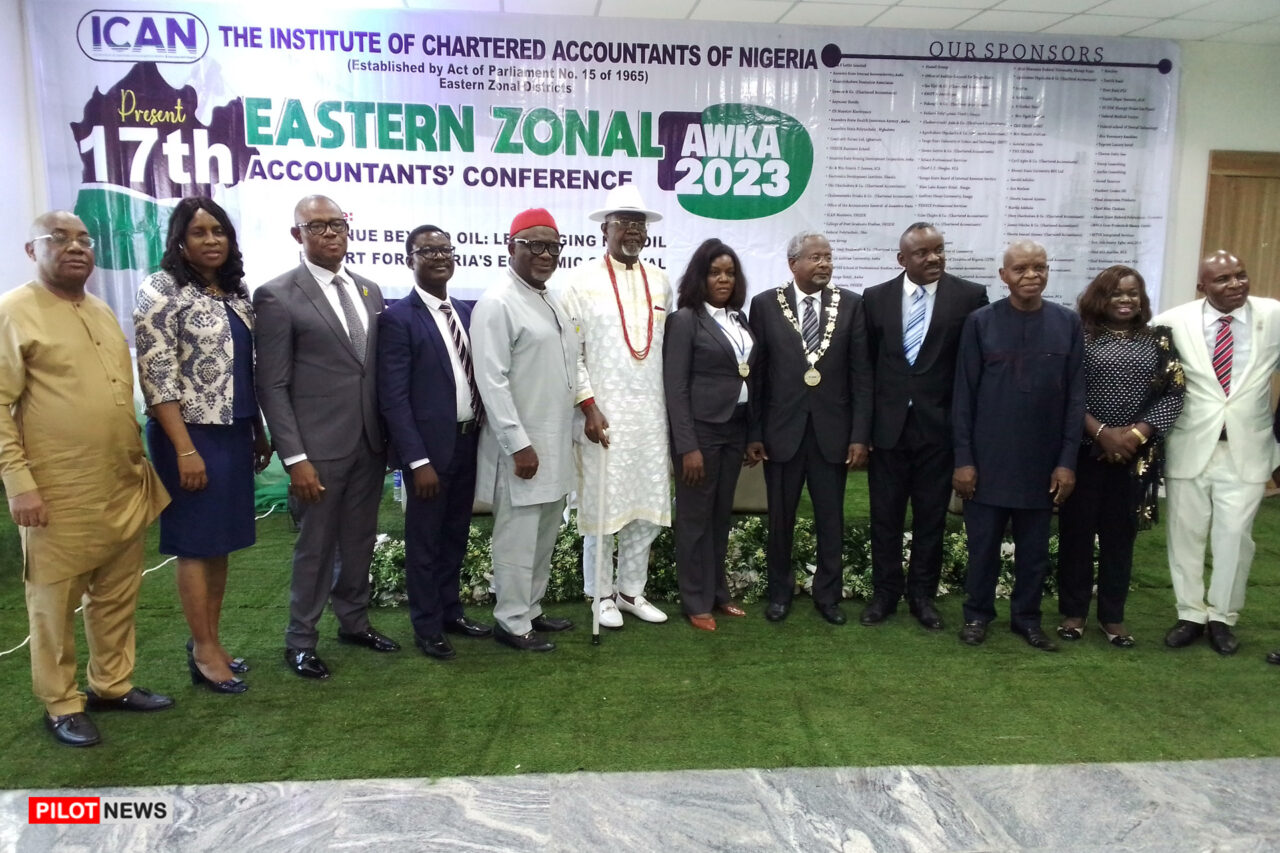The Institute of Chartered Accountants of Nigeria, (ICAN), has explain why there are persist controversy surounding the Central Bank of Nigeria (CBN) new naira note redesigning policy in the country.
The body says that the policy ignited controversies because the apex bank management fail to consult critical stakeholders before implementation.
The ICAN President, Mallam Tijjani Musa Isa, who disclosed this to newsmen on Wenesday, on behalf of the body at the ongoing seventeenth edition of the Institute Eastern Zonal Accountants’ Conference 2023 held at the International Convention Centre (ICC). Awka, Anambra State Capitall, noted that the controversies that has degenerated to the present situation of scarcity of the naira, would not have come up if there was a proper feasibility study and stakeholders engagement.
He said it was also wrong for the CBN to introduce the policy at the same time and year when the country is holding its 2023 general elections and the National Population Census (NPC) respectively.
According to the ICAN boss, yes, the CBN Governor, Godwin Emefiele, on October 26, 2022, announced that the new Naira notes would be introduced to replace the current 200, 500, and 1,000 Naira notes.
Emefiele said the naira note was redesigned to address the issue of individuals who have made currency fraud their main source of income. People who have hidden money they have stolen, for instance, would either find a way to change it by taking the money out or would not need it given the change in the value of the Naira, the currency change aims to deal a fatal blow to the growing kidnapping and ransom industry, to aid in lowering the rate of inflation and also to control the amount of money in circulation, okay, in principle, there is nothing wrong with that, but the CBN management in collaboration with the Federal Government would have considered broadly, the political and social economic perspectives of the policy before embarking on the journey.
“In the Political Perspective, in the same year, you are holding a general election, National Population Census, you also bringing in redesigning of new naira note policy, it looks political.
“On the Social-Economic Perspective, what are the intend benefits of the citizens? What are the buyings of the critical stakeholders on the matter? How much is the cost of printing the new notes? And the implications of combining three major assignments of National importance together. This are the issues the CBN and Government in power would have dialoque first before implementation.
“For you to bring in what I called radical or revolutional policy like the embattle currency policy, you need to identify all the critical stakeholders, the Government itselve, Commercial Banks Management, ICAN, Academians, Legal Professionals Civil Society Organisations, the Media, Traders, Farmers Youth Organisations and Community Leaders in a roundtable discusion to look at the acceptability or practicability of the policy and if the stakeholders says yes, then you procceed and if they says no, is not practicable, you put it aside because the policy is for all Nigerians irrespective of status.
“ICAN has issue it position statement on that effect.. And I can tell you that this ill-timed policy has affected millions of Nigerians, mostly, the rural dwellers that are not internet compliance to understand the dynamics of the cashless economic of the day,
He said due to the currency redesign, money in circulation had become scarce making daily transactions tasking and unbearable.
“The situation has now thrown millions of Nigerians into confusion due to different sources of information from designated authorities,” Mallam Isa added.
The ICAN President commended the Anambra State Governor, Chukwuma Soludo for providing a conducive environment for the programme in the state.
On her address, the South East Zonal Chairman of ICAN, Mrs Chima Ijeoma Okikechi, said this year’s conference is targeted at addressing the adverse consequences of over dependency on oil trade and the heightened need for the diversification of Nigerian economy towards non-oil export and trade.
According to her, there are empirical evidence to support that non-oil trade has great potential to propel Nigeria to the desired growth and development.
She maintained that the value chain approach holds the aces for future Nigerian sustainable economic growth and the approach can open up the economy and generate activities that are capable of creating jobs and enhancing industrialization in the country.
On his brief contribution to the theme of the event, the State Accountant General, Dr. Chukwudi Okoli, urged the Federal Government to also focus it attention to other mineral resoyrces spread across the six geopolitucal zones of the country for sustainable development and job creation.
The conference was officially declare open by the State governor, Chukwuma Soludo, represented by the Secretary to the State Government, Prof. Solo Chukwulobelu.
The Conference is themed: “Revenue Beyond Oil: Leveraging Non-Oil Export for Nigeria’s Economic Survival” with subthemes “Global Skills and Service Export: The Road Map to Export Led Economy”, “Quality of Agro-Export Products: A Pathway to Unlocking Nigeria’s Non-Oil Export Revenue” and “Boosting SMEs Growth for Non-Oil Export Through Instrumentality of Fiscal and Monetary Policies.”
Latest posts by Pilotnews (see all)
- Anambra 2025 Governorship Election Might Be an Open Contest - April 24, 2024
- Anambra Assembly Passes Bill To Prohibit Secret Cults - April 24, 2024
- 2024 Aguata NBA Law Week: AG, Prof. Ifemeje Touts Landmarks and Expectations - April 19, 2024
previous
FG places order for 25,000 metric tonnes of wheat from Ukraine
next


